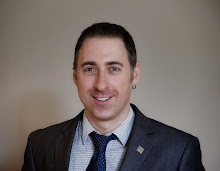On serving alongside the Americans in Afghanistan:
“People have a misconception when militaries operate together. Individual soldiers are not working alongside Americans, and in fact they have very little to do with each other. The combined operations are at a much higher level, and for the most part is the battle group is completely Canadian and they may have a company of Americans attached, or whatever. The soldier on the ground would only run into American soldiers when they were relaxing in Kandahar Airfield, and they maybe once in a while they may have a few units that are intermingled, but that’s really quite unusual. Where it might affect them is at the level of the very senior commanders, but even then they wouldn’t have any contact with Canadian troops really. Having said that, even in Kandahar Airfield, there’s not much intermingling—every nation’s soldiers sits by themselves, not intentionally, but it’s very [cliquey].”
On the oft-cited line about how gays in the military are bad for morale:
“It’s nonsense. There’s a very good article in the Armed Forces and Society journal a couple of years ago analysing the results of the lifted restrictions on the gays and lesbians in the Israeli Defence forces, and their findings were the same as Canada—‘so what?’ All these dire predictions about how it will destroy morale just never happened. People who have an entrenched position as the people who’ve instituted that policy in the US, aren’t going to be convinced by the facts. It wouldn’t make any difference if there were no problems in the Canadian military, and even the research that shows that gays and lesbians serving openly has no effect on morale, cohesion, all that stuff, they find ways to still justify their positions. I’m not sure that even being exposed to an environment that there’s no effect on morale, or that Canadian soldiers are every bit as good as any other nation’s soldiers, they’d find some way of justifying their position anyway. It takes generations of change.”
On whether Canada is setting an example in the world:
“I’m not sure to tell you the truth, but there are other nations that have similar policies or no policies.” [The UK for example]. “That was a hard go. I can remember when I was in England doing my PhD in 1994, and one of my very best friends was a gay guy serving in the Royal Navy Reserve—not openly. Well, he was open in his civilian life, but couldn’t be in the military, but he was always dancing this line where if they found out they could get rid of him. But at that point, it was still very heated subject, but then again they changed the rules and it was like ‘big deal.’ I’m not sure if anyone has done any ‘after’ studies to find out what the results have been.”
On cultural differences in Afghanistan:
“A lot of comments about the Afghan National Army, there were rumours that they were all gay, which of course isn’t true any more than rumours that all the guys in the infantry were straight, and some of that is a misunderstanding about cultural norms about physical affection and what’s sexual and what isn’t.”
On women serving on the front lines:
“It’s very much the same thing [ie--only caring that you do your job]. People used to worry about privacy, but nobody cares. I was there with them, peeing beside them, nobody cares about that. Basically if you do your job, you’re accepted. I get quite upset about some scholars who write about how you have to give up your femininity or be a pseudo-male to be in order to be accepted by the military, but I’m thinking that just because somebody is physically tough or stoic, or wear short hair or no make-up does that make her pseudo-male? It reproduces many of the stereotypes that feminists claim to be challenging, that you have to be ‘like a man.’ Well, what’s a man?”
An anecdote which exemplifies this:
“There’s only one woman [in the company], and these guys are mostly big, tough, stoic, physically very fit and tough guys. And we were sitting around with them, I had only been there a few weeks at that point, and this woman came over and was joking with the guys and we were just about to head out and she said ‘Well, I was brought here to bring some femininity to this organisation’ and the one guy looked at her and said ‘I have more femininity in my little finger than you have in your whole body.’”
Thanks again to Dr. Irwin for the great interview.




No comments:
Post a Comment